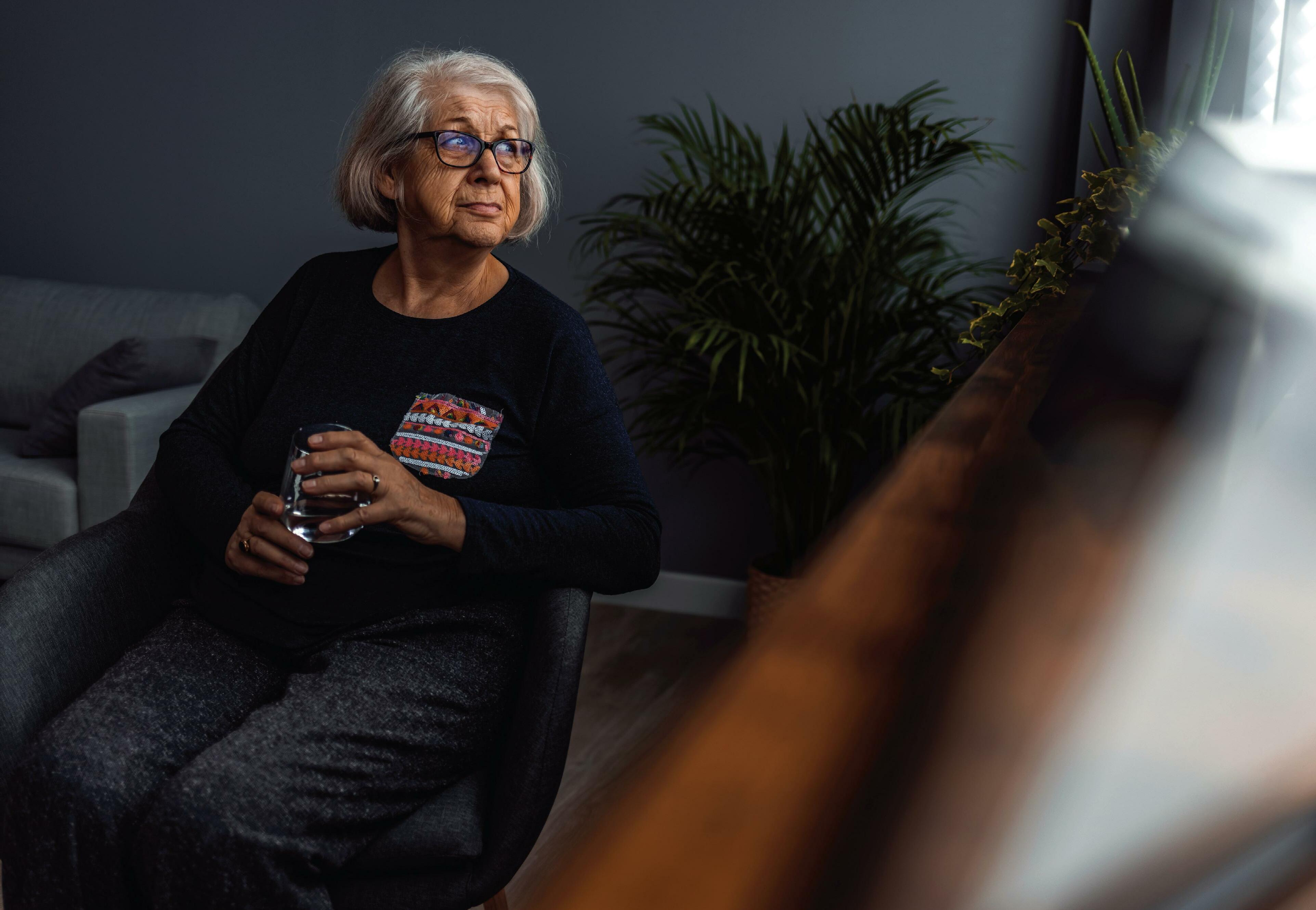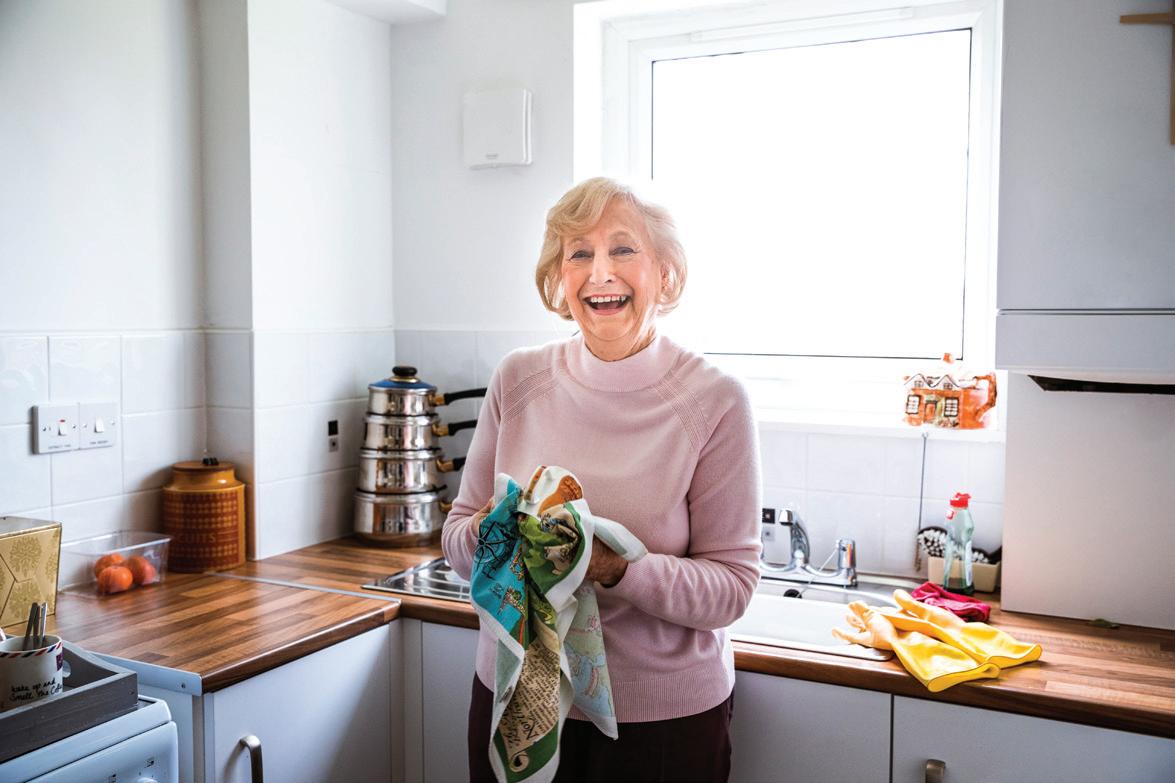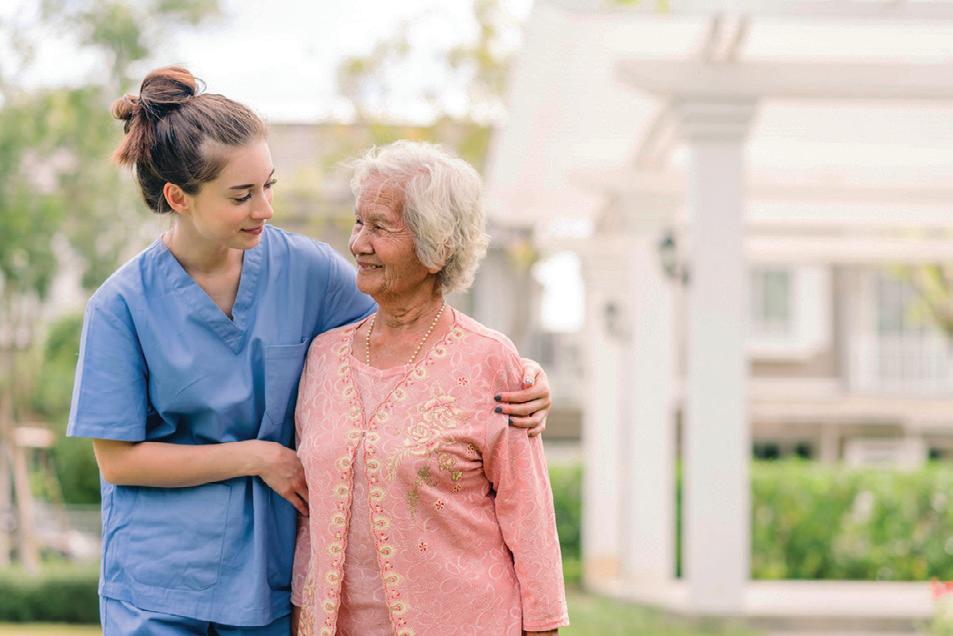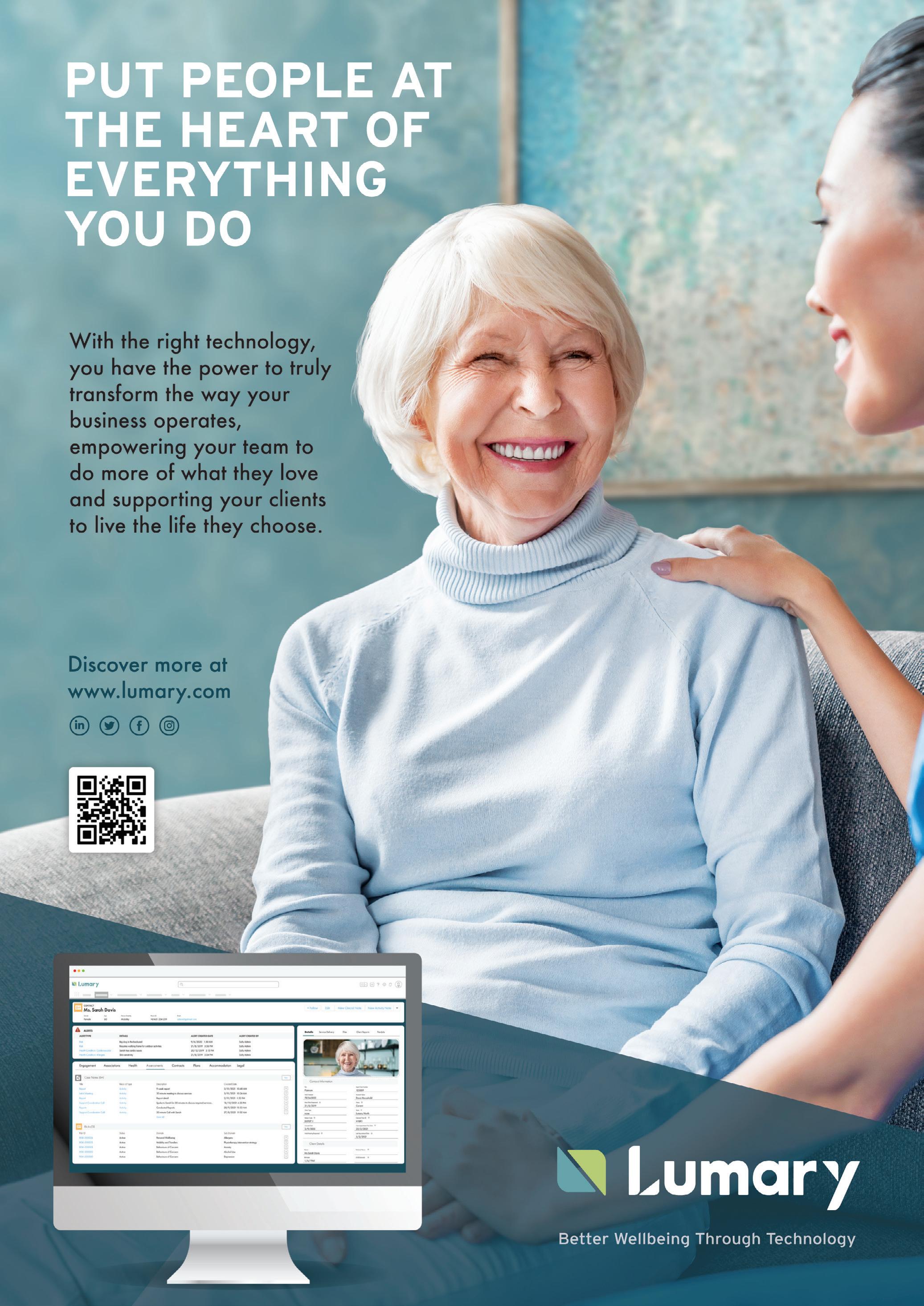
10 minute read
Evidence-based practice to transform care outcomes








Professor Yun-Hee Jeon, a registered nurse and an academic, has spent more than two decades on psychogeriatrics and gerontology research, with a strong passion and determination to improve health and wellbeing of older people and for improving care outcomes.
Professor Jeon, Director, StepUp for Dementia Research and StepUp for Ageing Research, and a Susan and Isaac Wakil Professor of Healthy Ageing in the University of Sydney’s Faculty of Medicine and Health, was recently recognised by the United Nations (UN) as one of the top 50 global leaders who are working to transform the world to be a better place in which to grow older.
The Healthy Ageing 50 is a new UN Decade of Healthy Ageing initiative supported by the World Health Organization (WHO), the UN Department of Economic and Social Affairs (UNDESA) and the World Economic Forum (the Forum).
“I have been working in dementia and aged care research for the last 23 years and my work is all about improving quality of care, supporting healthy aging and also supporting people who are providing care to those living in aged care homes or in the community.” Jeon is also working on developing and evaluating models of care for older people, improving the quality of life of those with dementia and building workforce capacity.
“A model of care is about having a good system and governance for service delivery. We tend to focus on single interventions, which can be challenging to embed in day-to-day practice. If you develop a model of care in consultation with staff and service providers, enable them to deliver it while providing some form of structure, then the intervention becomes part of routine practice.”
REHABILITATION AND RE-ENABLEMENT
One of Jeon’s key focuses is to ensure older people with dementia receive rehabilitation/re-enablement. “Dementia is a condition where people often feel completely helpless and hopeless. The principle of this approach to care is about recognising that one of the top priorities for a person is to maintain their independence — things that they can and cannot do – with an emphasis on the person’s capabilities. When we provide care on the principles of rehabilitation and using rehabilitation interventions they manage their health and issues affecting their health better,” she said.
Jeon is the lead investigator for the Interdisciplinary Home-bAsed Reablement Program (I-HARP) — a project that promotes aging well in the community and aims to improve dementia outcomes through at-home care. I-HARP is based on CAPABLE, a program developed by Johns Hopkins University to help older adults age in place.
As a part of the projects, the researchers conducted a pilot study involving 18 people with dementia and their carers. The study showed potential benefi ts in terms of individual goal attainment, mobility, independence, wellbeing and confi dence, according to the University of Sydney.
The program is delivered by an occupational therapist and registered nurse — with the involvement of other allied health professionals as needed >>
— over a period of four months. Building on the success of the pilot, the team has conducted a larger trial, funded by the National Health and Medical Research Council (NHMRC) to understand how best this program can be implemented in ‘real-life’ settings (2018-2022).
Industry partners for the project included Anglicare, BaptistCare, Canterbury Hospital, Concord Hospital, Royal North Shore Hospital and Ryde Hospital.
The program includes a maximum of 12 home visits for the person with dementia, three information and support sessions for their carer and provision of minor home modifications/ assistive devices to improve home safety and reduce the risk of falls.
Study participants said that focusing on their abilities was reassuring and gave them a feeling of hope and independence. The one-on-one, hands-on approach, continuity and regularity of visits, and specialised yet easy-to-follow suggestions from each clinician were said to be some of the key reasons for the success of the program.
The pilot study showed “within 12 months of taking part in the study, participants had fewer falls, fewer hospital admissions and none had moved into residential aged care”. The main trial results are soon to be published with promising outcomes for those with mild dementia (early stage), indicating the importance of early intervention.
MAINTAINING INDEPENDENCE
When it comes to dementia and care planning, one of the top priorities according to Hee Jeon is that those being cared for maintain their independence. “When we provide care on the principles of rehabilitation, using rehabilitation interventions, people manage their health issues better,” Jeon said.
“Dementia is a condition where people often feel completely helpless and hopeless. It is an umbrella term for a lot of conditions, and depending on the type of dementia people have, they have different trajectories and prognosis, and we need to design interventions accordingly based on their needs and preferences.”
“We help service providers understand the importance of rehabilitation and how they can deliver the rehabilitation approach. There are lot of different interventions that can be used, but we need to give providers and clinicians some sort of structure and support,” Jeon said.
The University of Sydney is currently leading a partnership project to work with dementia and aged care industry leaders to promote the implementation of person-centred reablement support for people living with dementia in residential aged care. The project has been awarded $1.2 million under the National Health and Medical Research Council (NHMRC) Partnership Project scheme, with co-contribution from partners bringing the project total to over $3 million.
The project involves providers HammondCare, Calvary, Whiddon and Bolton Clarke, Aged & Community Care Providers Association (ACCPA) and Dementia Australia. Jeon, Chief Investigator on the project, said historically people with dementia, particularly those in residential aged care, were deemed unsuitable for reablement or rehabilitation programs because of the progressive nature of the condition. However, growing evidence shows the benefits of such programs for people living with dementia in the community, helping them maintain independence for as long as possible. This new project is a culmination of her work to bring reablement and rehabilitation in dementia care to the fore in the past 10 years nationally and internationally, according to Professor Yun-Hee Jeon.
“Currently 52% of residents in aged care homes in Australia have a diagnosis of dementia, with an additional 20 to 30% with some form of cognitive impairment,” Jeon said.

CREATING A PLAYBOOK
The five-year clinical trial with aged care providers will see partners codesign, implement and assess the effectiveness of reablement programs with the ultimate goal to disseminate a sustainable reablement model for residential aged care, Jeon said. The project aims to create a playbook that can also be used by other aged care providers to improve care outcomes.
“This is an important priority as we know these programs can make a significant and meaningful difference in people’s lives and are very much in line with the recommendations of the Royal Commission into Aged Care Quality and Safety,” according to Jeon.
The multidisciplinary research team comprises leading experts in nursing, speech pathology, physiotherapy, neuropsychology, occupational therapy, dietetics, health economics, geriatric medicine and policy development from the University of Sydney, Queensland University of Technology, Monash University and The University of Queensland.
“Reablement programs focus on the individual and involve setting goals and strategies to help people maintain or improve their independence and daily function. This includes the ability to perform everyday tasks or to do the things they enjoy.”
Jeon has also worked on the development of workforce capacity in aged care and is a leader in establishing evidence- and practice-based benchmarks and tools for assessment, and outcome measurement in dementia, according to the University of Sydney. Read more about her work here.


SPONSORED CONTENT IMPROVING EFFICIENCY AND BUILDING A SUSTAINABLE HEALTHCARE BUSINESS
Large workloads, more paperwork, and a lack of time mean productivity is more important than ever for healthcare organisations. Digital technology is paving the way forward, helping providers uncover effi ciencies and build a more sustainable business.

Our healthcare industry faces some signifi cant challenges over the next few years.
Most pressing is one of Australia’s largest labour shortages, which has left our aged care sector short of 35,000 workers each year and the disability sector in need of 83,000 more workers by 2024 to fi ll gaps in the NDIS.
Time is precious in this climate, which makes productivity essential. An organisation with ineffi cient processes risks hampering growth, frustrating employees, and compromising the quality of care for clients.
FUTURE-PROOF YOUR BUSINESS WITH TECHNOLOGY
One way to ensure your organisation thrives, despite worker shortages and mounting compliance pressure, is to boost productivity with digital technology.
Manual administration costs staff time and resources that could be better spent caring for clients. It also creates uncertainty over whether you’re doing things correctly, as no organisation wants to incur penalties for simple compliance errors.
By streamlining paper-based tasks, providers can boost productivity and build a more sustainable business for the long-term future. Here are three ways your business can achieve this with technology. found two-thirds are planning to leave the sector in the next four years, partly because of too much paperwork and high levels of stress.
Reducing paperwork by automating manual processes can relieve this pressure by helping employees get through admin tasks more effi ciently, giving them time back in their day.
Rather than having to manually fi nd client information from different sources, a digital system means workers can easily capture, record and access data from one place, no matter where they are. Staff will ultimately be more productive, with more time to care for clients, greater job satisfaction, and less risk of burnout.

2. Make compliance easier
Aged care and NDIS compliance regulations are increasingly complex as the care sector seeks to lift standards on the back of the relative Royal Commissions. Providers must stay up to date to maintain compliance, but this can be costly and time-consuming.
Technology can make this process much more effi cient. Regulatory and government-driven price changes could be incorporated automatically into a provider’s system rather than added manually. This boosts productivity by reducing the time spent on compliance and lessens the risk of incurring breach notices and penalties. of time reconciling service delivery with the billing and claiming process, which impacts cash fl ow and business sustainability.
A digital solution that integrates with the NDIS and other funding streams can reduce the time spent processing claims — often down to the same day.
Creating a fl ow of digital information — from enquiry to service agreement, care delivery and billing — also prevents ineffi ciencies that can stall claims and payment. If data is highly visible, you’re less likely to provide services when a client’s NDIS plan has expired, which helps prevent revenue leakage.
4. The end goal: business sustainability
Productivity through digital transformation isn’t an end in itself. With the right technology partner, it has the power to support fulfi lled workers, happier clients, and higher standards of care.
This ultimately creates a sustainable care business — one that not only withstands outside pressure but is highly scalable for growth and offers the best standards of care.
Connect with Lumary to understand how we can help your organisation boost productivity and business sustainability through digital innovation.







